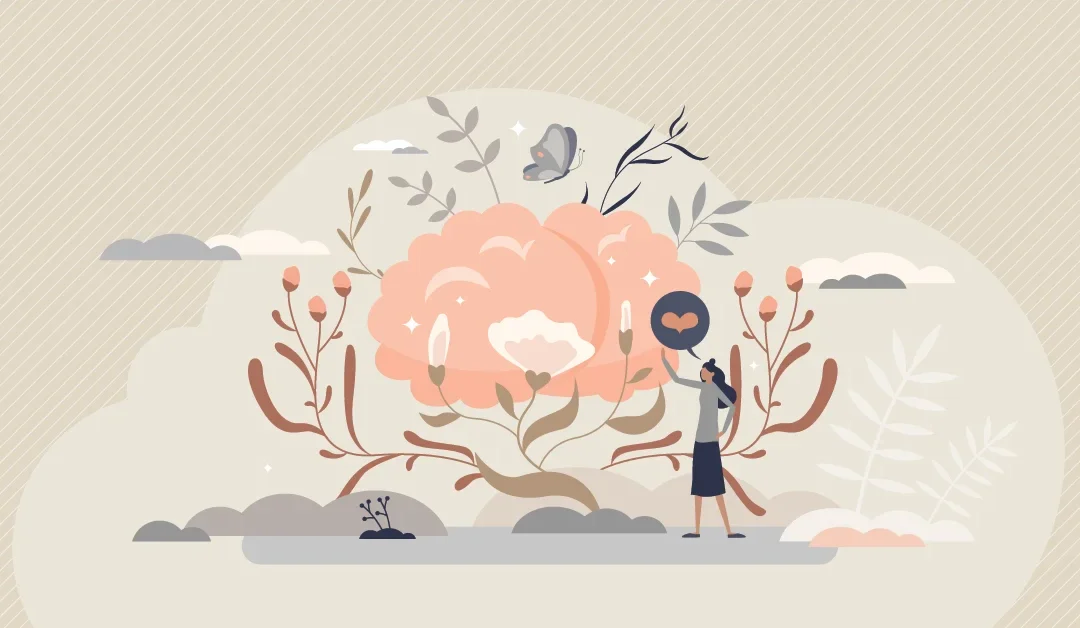One of the most important conversations you may ever have could be with someone facing a mental health problem or mental health crisis. Building a genuine connection with a person by listening, empathising, and offering support can improve the immediate situation and provide the starting point for further help seeking.
What is a mental health conversation?
A mental health conversation involves talking with someone one-on-one about a mental health problem or mental health crisis they are experiencing and offering appropriate support. Conversation is the key component of the ALGEE® Action Plan taught in Mental Health First Aid (MHFA™) courses.
A mental health first aid conversation can happen in any setting, including schools, the workplace, at home, or out in the community. Every conversation you have will be different. Factors such as your relationship with the person, the problem they are experiencing and individual characteristics such as age, gender, culture, beliefs and values, can play a role in how the person engages with the conversation. The person’s access to professional help and others supports including family and friends is also relevant, both during and after the conversation.
By learning and practicing mental health first aid skills, we can create a pathway for a healthy, safe and supportive conversation with someone experiencing a mental health problem.
In general a mental health conversation will cover some or all of these elements:
- Approach: the person, assess and assist with any crisis
- Listen: and communicate non-judgementally
- Give: support and information
- Encourage: the person to get appropriate professional help
- Encourage: other supports
The Mental Health First Aid ALGEE model recognises that these elements need to be flexible so the conversation can flow naturally. You can be actively listening, assessing, and providing offers of information and support at different points in the conversation. You can go back and forth through the ALGEE steps based on your judgement and the needs of the person you are speaking with.

Do’s and Don’ts for a mental health conversation:
Do:
-
- Act on any signs of immediate harm, suicide, or risk of injury
- Be ready, approachable, and engaged
- Approach the person discreetly
- Listen without judgement or pre-conceived ideas and encourage the person to talk freely
- Respect the person’s boundaries and right to privacy
- Repeat things back to show you understand
- Provide information about options for professional support, if needed
- Go into a mental health conversation acknowledging that it may not go as planned and that the other person may not be ready to talk. If that’s the case, arrange to talk to the person at another time, or get help from other services or people
- Undertake an MHFA Training Course or Refresher Training to prepare
Don’t
- Don’t diminish, downplay, or stigmatise the person’s problem or experiences
- Don’t talk too much, interrupt or forget to listen actively
- Don’t make it about you e.g. talking about your own troubles
- Don’t try to solve all their problems or expect to have all the answers
- Don’t try to diagnose the person’s problem
- Don’t take the person’s negative symptoms, emotions, or words personally
- Don’t forget to take care of yourself and your own well-being
Remember, you don’t have to know all the answers.

Examples of conversation starters:
“I’ve noticed you’ve been down lately. If you think it would help to chat, I’m happy to listen. Did you want to come to get a coffee and we can talk about it now?”
“You mentioned you weren’t coping well with the work pressures and what’s happening at home. I know you aren’t in the office at the moment, is there a time today we can meet via video or phone?”
“Are you ok? Shall we grab an empty room in the office, and I’ll sit with you for a bit?”
“Hey, I know things have been tough lately. Let’s go for a walk and you can tell me about it.”
“I’m so sorry to hear you’ve been going through that, it sounds hard. Tell me more.”

Culturally Sensitive Language
Every culture engages with mental health topics in different ways. It is important to be mindful of language, cultural norms, and values, and spiritual and religious beliefs when having conversations about mental health and mental health problems. Certain words may cause additional distress or make it difficult to connect with a person. Other culturally specific words can be appropriate for encouraging support.
Our Aboriginal and Torres Strait Islander Mental Health First Aid course can provide knowledge and skills on how to support an Aboriginal or Torres Strait Islander experiencing a mental health problem or mental health crisis.


What’s behind an MHFA conversation?
Take a look at this useful resource we created to help provide valuable insight into what makes a successful mental health first aid conversation.
Sharing content from our courses, we look at a range of different scenarios and break down the steps and skills needed to have a successful mental health conversation with someone you are concerned about.
We step through what was said, how it was delivered and why it resulted in a positive outcome.
Learn More About our Training
Click below to learn more about our full range of courses.



